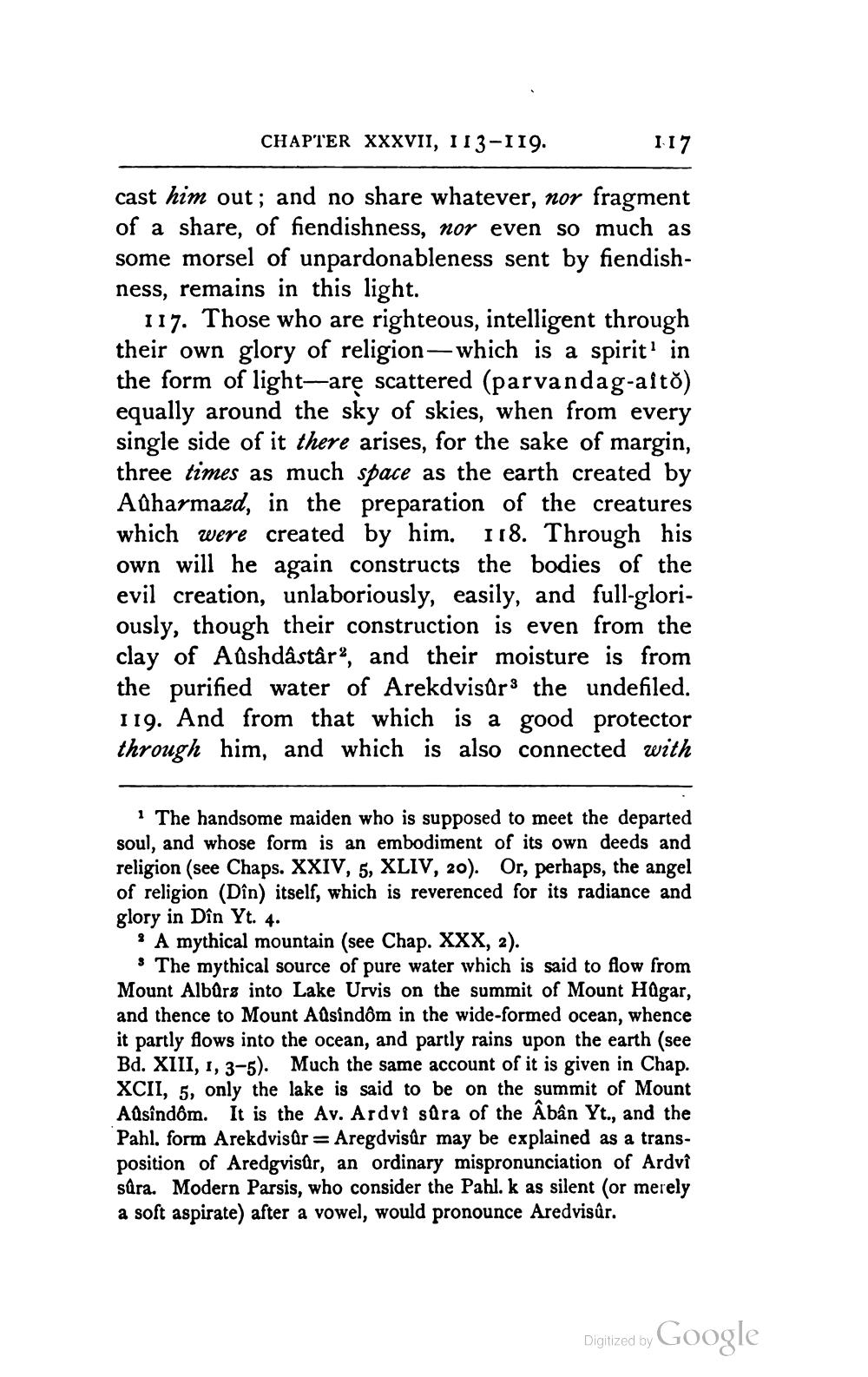________________
CHAPTER XXXVII, 113-119.
117
cast him out; and no share whatever, nor fragment of a share, of fiendishness, nor even so much as some morsel of unpardonableness sent by fiendishness, remains in this light.
117. Those who are righteous, intelligent through their own glory of religion, which is a spirit? in the form of light-are scattered (parvandag-aito) equally around the sky of skies, when from every single side of it there arises, for the sake of margin, three times as much space as the earth created by Adharmazd, in the preparation of the creatures which were created by him. 118. Through his own will he again constructs the bodies of the evil creation, unlaboriously, easily, and full-gloriously, though their construction is even from the clay of Aůshdâstâr”, and their moisture is from the purified water of Arekdvisûrs the undefiled. 119. And from that which is a good protector through him, and which is also connected with
1 The handsome maiden who is supposed to meet the departed soul, and whose form is an embodiment of its own deeds and religion (see Chaps. XXIV, 5, XLIV, 20). Or, perhaps, the angel of religion (Dîn) itself, which is reverenced for its radiance and glory in Dîn Yt. 4.
? A mythical mountain (see Chap. XXX, 2).
: The mythical source of pure water which is said to flow from Mount Albûrs into Lake Urvis on the summit of Mount Hogar, and thence to Mount Adsindôm in the wide-formed ocean, whence it partly flows into the ocean, and partly rains upon the earth (see Bd. XIII, 1, 3-5). Much the same account of it is given in Chap. XCII, 5, only the lake is said to be on the summit of Mount Ausîndôm. It is the Av. Ardvi süra of the âbân Yt., and the Pahl, form Arekdvisûr = Aregdvisûr may be explained as a transposition of Aredgvisûr, an ordinary mispronunciation of Ardvî süra. Modern Parsis, who consider the Pahl. k as silent (or merely a soft aspirate) after a vowel, would pronounce Aredvisûr.
Digitized by Google




